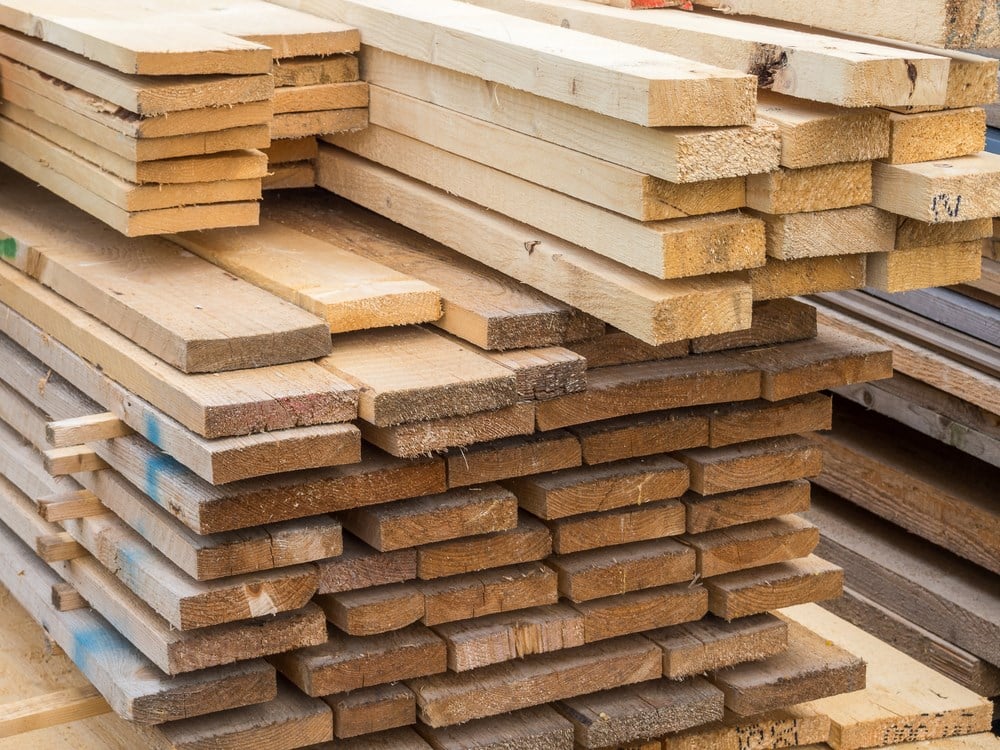
Coming up with an investment idea is the hardest part of the job. However, investors can add some worthwhile names to their watchlists after much - if not all - of the homework has been done for them. Interconnected sectors and industries typically provide great opportunities simultaneously, such as the following.
In the United States, the residential real estate sector is caught taking a nap, causing lumber prices to fall into the same sluggish pattern. Within the latest ISM Manufacturing PMI report, investors can find a nine-month consecutive contraction in the wood industry the reason?
Respondents across the wood products industry commented within the report that the FED's path to interest rate hikes led to an "... increase in borrowing costs has dampened demand for residential investment." With mortgage costs rising to their current 7.6% level, would-be homebuyers postponed their purchases and slowed down further construction.
A slowing in residential construction would ultimately mean lower demand for the materials needed to undertake these projects, which is why the following stocks may be about to go lower to levels where the perceived upside becomes attractive enough to buy potentially. For now, you can add these to your watchlist.
UFP Industries
Jumping ahead of the pack, shares of UFP Industries (NASDAQ: UFPI) have been selling off this week, bringing investors a near 6% discount with the possibility of a bigger one by Friday's closing bell.
Here are a few levels to look out for and why this is one company that can quickly turn its stock price around. Starting with the technicals, UFP's stock chart can be used to derive the first tentative support level investors can count on for a reasonable entry.
Taking Wall Street's definition of a 'Bear Market,' investors can take the last high price in UFP of $107.57 and apply a 20% discount, which would characterize it as bear territory.
Roughly landing at $86 a share, this could be a price where the stock could begin to see some strong support and liquidity coming from new investors looking for a good deal.
Interestingly enough, that level represents a 61.8% Fibonacci retracement, a level that is regarded as the optimal trade entry retracement. Today's analyst ratings point to a net upside of only 5.5% and could expand to double-digits should UFP decline to that sweet spot.
Looking at the latest quarterly results presentation from UFP, investors realize that the market's reaction to the stock price today may be an exaggeration. UFP's revenue from residential construction makes up only 32% of the whole, a diversified business model that is undervalued.
Not only is the revenue coming from other places than the residential sector, but the company is diversified across eight different countries, so is a U.S. residential slowdown as bad as the stock price makes it out to be? Investors can take advantage of this discount and call UFP an easy win for the year.
Owens Corning
Following similar steps to UFP, Owens Corning (NYSE: OC) brings investors a recent decline, a bit smaller at nearly 4%, though still something to consider. This company's financials, namely during their latest quarterly presentation, will show some of the current effects of the residential slowdown inside the fundamentals.
A 1% decline in revenue during the year may be just the beginning. However, like UFP, future investors can wait for a sweet spot that Wall Street calls a bear market.
For Owens, the latest peak price falls at $147 a share, where a fall towards $118 would officially categorize the stock as being in bear territory.
While less diversified in geography than UFP, Owens still showcases a relatively strong business model. While markets may think that this company relies solely on new construction for their sales, used homes can be a reasonable source of additional income.
Roofing and insulation are expenses incurred every so often in existing homes, though with obviously less certainty relative to new construction. Markets don't like uncertainty, which may be why the stock is declining today.
With a consistent ROIC (return on invested capital) above 12%, investors can lean on the fact that the long-term performance of stocks typically falls in lockstep with this metric, so buying Owens at the technical bear territory could enable new investors to lock in those coupons.
Boise Cascade
Showing the most significant decline in this group, a 7% selloff places Boise Cascade (NYSE: BCC) at the top of the list for an upcoming wake-up call. The bear marker would fall at roughly $90 a share, a strong liquidity level, as showcased by how the stock reacted in July 2023.
In a similar tune to the industry, revenues at Boise declined by 20% during the year, causing reasonable concerns for markets who decided to let go of the stock at its high.
In simple terms, the five-year average ROIC for Boise is above 30%, so is a temporary contraction something to be worried about? Well, yes and no. Since there is nothing precisely wrong with Boise, investors cannot blame it for a contraction affecting everyone in the industry.
If things were that bad in the company, management would not have increased its dividend payout by an astonishing 33%, implying that the stability and future outlook for the business fundamentals remain as solid as ever. It would be wise to bet with the insiders once this stock hits the projected discounts.
